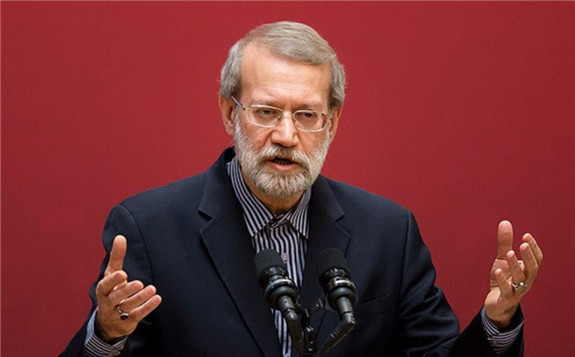
World powers have called on Tehran to adhere to the 2015 nuclear deal a day after it was confirmed that Iran breached the limit on its stockpile of low-enriched uranium set under the agreement intended to curb the country's nuclear activities.
In a joint statement on July 2, the foreign ministers of Germany, Britain, and France and the EU foreign policy chief urged Iran to “reverse this step and to refrain from further measures that undermine the nuclear deal.”
"We have been consistent and clear that our commitment to the nuclear deal depends on full compliance by Iran," the statement said.
Separately, French President Emmanuel Macron also called on Iran to "to immediately reverse this overshoot” and to respect its “nuclear obligations."
Earlier, a spokesman for Prime Minister Theresa May said it was "urgently considering next steps."
"We have been consistently clear that our commitment to the [nuclear deal] depends on Iran complying in full with the terms of the deal and we urge them to reverse this step," the spokesman added.
The International Atomic Energy Agency announced on July 1 that its inspectors verified the 300-kilogram cap had been exceeded, confirming an earlier claim by Iranian officials.
Iran said in May that it was stepping up production of enriched uranium in response to sanctions reinstated by the United States after it withdrew from the accord a year earlier, arguing that Tehran had violated the spirit of the pact.
Signed by Iran and the five permanent UN Security Council members plus Germany, the deal aimed to prevent Iran from developing nuclear weapons. In exchange for curbs on its nuclear program, which Iran claims is strictly for civilian purposes, Tehran received relief from crippling international economic sanctions.
Enriched uranium is used to make reactor fuel, but can also potentially be used to produce nuclear weapons.
In Moscow, Russian Foreign Minister Sergei Lavrov urged Iran “not to give in to emotions” and instead abide by the nuclear agreement, known as the Joint Comprehensive Plan of Action (JCPOA).
But all parties, not just Tehran, have to honor their commitments for the JCPOA to be preserved, Lavrov also said, adding that European countries should "safeguard Iran's economic interests."
China said it regretted Iran's decision to exceed the limit on enriched-uranium reserves but added that U.S. "maximum pressure is the root cause" of tensions.
Foreign Ministry spokesman Geng Shuang called on all parties to “exercise restraint and uphold the JCPOA together so that there won't be further escalation in the tense situation.”
U.S. Secretary of State Mike Pompeo called on July 1 for Iran to halt all uranium enrichment, saying "no nuclear deal should ever allow the Iranian regime to enrich uranium at any level."
"The United States is committed to negotiating a new and comprehensive deal with the Iranian regime to resolve its threats to international peace and security, " Pompeo said in a statement. "As long as Iran continues to reject diplomacy and expand its nuclear program, the economic pressure and diplomatic isolation will intensify."
Speaking later to reporters at the White House, U.S. President Donald Trump accused Iran of "playing with fire."
Trump “needs to understand that when you use the language of a bully against a civilized nation, they become more united,” Iranian parliament speaker Ali Larijani said on July 2.
Iranian officials have complained that the remaining parties to the deal had failed to mitigate the effects of the U.S. sanctions on Iran's economy.
European countries have warned that any violation of the agreement would bring consequences but did not say what they might be.
With reporting by AFP, the BBC, Reuters, and AP